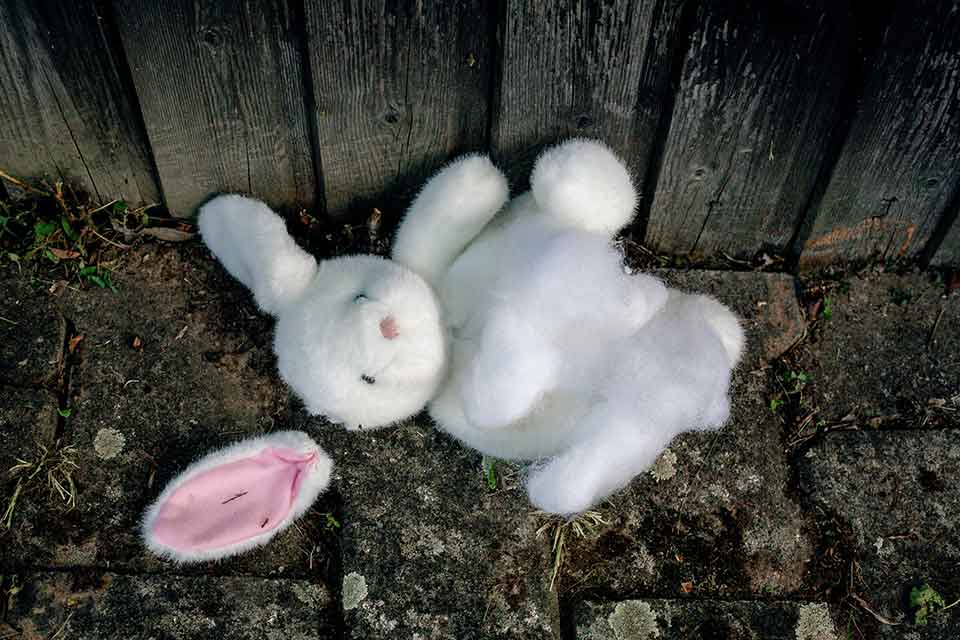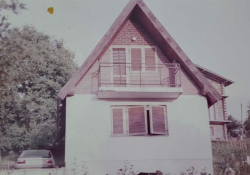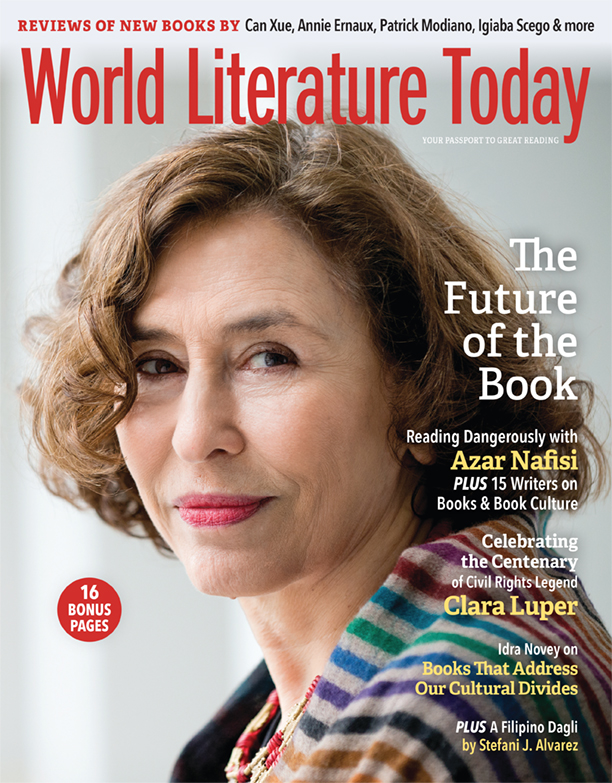Silencing
 An ordinary day in Ávila darkens following a neighborly intervention.
An ordinary day in Ávila darkens following a neighborly intervention.
Setting a succulent into the window box outside, Maria spotted the boys from 2D in the courtyard below. Three brick buildings and a wire fence framed the yard. Up above, the sky moved with clouds. One of the boys was seven, the other nine. Maria on occasion chatted with their mother by the mailboxes on the ground floor. Their father had passed. The mother worked two jobs.
The boys stood hunched together, hiding something between them, and they sneaked glances now and then at the courtyard gate. This smelled rotten to Maria, and she glanced at the open living room down the hall to see whether her husband was watching her. In the corner armchair, he held the newspaper open before his face. Her shoulders relaxed. He often chided her for getting involved in others’ lives, for getting them both in trouble with her tongue.
This smelled rotten to Maria, and she glanced at the open living room down the hall to see whether her husband was watching her.
The smaller boy, blond head in sun, raised his eyes to the building opposite Maria’s. He then looked at the adjacent building and at Maria’s after that. Maria ducked inside, waited, and then peeked back out.
The older boy crouched to lay something on the ground. The little one, stepping aside, gave Maria space enough to see something small and furry on the grass. Brown. Was it a rabbit? A cat? She strained her neck to see. The older boy pulled a penknife from his pocket—a tiny flash of light—and knelt before the creature and began to cut.
Maria’s hand flew to her mouth. She looked to the living room—her husband was holding the paper up with one hand and reaching for the peanut bowl with the other. In a quick decision, she rushed to the vanity in her bedroom, removed the clips from her hair, fluffed it up, and hurried to the front door and opened it wide.
“Maria?” her husband let out.
“Uh-huh,” she said and slammed the door behind her and hurried down the building’s staircase round and round. Heart pounding, she could not decide whether to head directly to the courtyard or to knock on their mother’s door. On the second floor, she forced herself to stop. Despite her urgency, it would be too intrusive to discipline someone else’s children.
She knocked and knocked, and when the door opened to a frightened Paulina, Maria clasped her hands at her chest in prayer and knitted her brows. “What I’m about to tell you is very troubling,” she said.
The woman’s eyes grew wide. “What? What?” She clasped the top of her robe closed with a hand.
“Your boys. Your boys are in the courtyard. They are . . .” She had to stop. She covered her face with her hands and then lowered her hands slowly, closing them into fists. “There is no other way to say it. They are torturing an animal.”
Paulina’s frightened expression fell slack. She released the collar of her robe and her shoulders relaxed. She placed her hands on her hips. “What kind of animal?”
Maria wavered—had she built this up too much?—but then she remembered the older boy’s elbow cutting back and forth into the creature and pain rushed her chest and she knew she was right. “It was big. A mammal. Maybe a cat.”
Paulina’s eyes focused with interest. She looked like she was calculating something. Then she gave a nod. “Fine,” she said. “Show me where they are.” She removed the keys from the hook by her door, was about to step out, and then remembered something on the stove and strode into the apartment and told Maria to wait.
As Maria waited, inside Paulina’s apartment, on the wall by the door, she saw a framed virgin and child. The virgin’s halo shone gold.
When Paulina returned, the women hurried to the ground floor, almost knocking over an octogenarian going up. “So sorry, so sorry.”
They flew out the front entrance and around the building to the back. Maria led, bent at the waist, and signaled with her hand for Paulina to duck. On either side of the courtyard gate, shrubs grew wild, and Maria peeked over their branches. The boys were standing in the same spot as before, their backs to the women. Maria, quiet, lifted the latch. She entered the yard and straightened to her full height as she strode to them, like a king in leggings and fur cape walking into town.
“What’s going on here?” she pronounced.
The boys swung around. They stepped close together, their skinny bodies a wall to hide their victim. Their eyes flew to their mother behind Maria, and the little one’s mouth dropped open.
Paulina came round Maria fast. “Toñito, Gabino, show me what you’ve done.” She grabbed the boys by the upper arms, pulled them apart. The little one, Toñito, whimpered, “Please, Mom.”
On the ground behind them sat a stuffed toy rabbit. Its ears, cut off, lay on the ground. Stuffing poked through the holes where the ears had been.
Maria’s mind shimmered like pixels creating an image on a screen. The clarity filled her with relief. “It is a toy! It is a toy!” She looked at the sky and laughed. The glory of Heaven had saved them, shining its light into the yard. She pressed a hand to her chest, turned to Paulina, who still held both boys by the upper arms, and said, “Well, my goodness, I feel embarrassed. I have caused a stir for nothing.”
Paulina’s eyes pierced into the rabbit.
Maria grew silent, confused. She approached Paulina, placed a hand to her shoulder. “Paulina, it’s just a toy.”
Paulina twitched her shoulder, and Maria removed her hand. Paulina released the smaller boy and grabbed her eldest by the shoulders. “Where did you get it?” she said.
The boy tucked his chin in.
She shook his body. “Where did you get it?” Her face was cold and pointed, but her voice carried tears.
Little Toñito clasped at one of her arms and tried to pull it off Gabino. “Mom, please don’t hurt my brother. Mom.”
She shook him off without releasing Gabino.
Gabino began to cry. He wiped his tears with the fleshy part of his palm. He could not look at his mother.
Maria wanted to reach her arms out to embrace him, but Paulina’s tense presence kept her back like a wall. She looked up at the buildings around them. Closed windows gleamed in shade and light. Her window alone stood open to the courtyard.
Taking a breath, gathering a tone of calm and reason, she opened her mouth to apologize for getting involved, to say that thank heavens nothing of harm had been done, but the older boy through a whimper said, “It’s from a girl in my class.”
Paulina’s nose scrunched. “Did she give it to you?”
The boy stayed mute. He turned his head to the side, eyes fixed on the ground.
“Did she give it to you?”
His silence loomed bigger than anything.
He shook his head no and covered his head with protective arms.
Paulina whipped her arm up and struck him across the head, across the shoulder, across the ribs. She hit him for being a liar, for being a thief, for being a shame. He almost fell to the side.
Toñito nearby covered his own head with his arms at each blow, as if he too were being hit.
“Just you wait,” Paulina said. “Just you wait until we’re inside.” She grabbed him by the forearm, walked to Toñito and took him by the upper arm, and steered them toward the gate.
As they walked past Maria, little Toñito looked up at her with shameful eyes, as if in apology. Maria with her whole heart wanted to go to him. She felt guilty. What had she done?
“I thank God your father isn’t alive to see what you’ve become,” Paulina said.
Maria’s soul almost jumped out of her mouth.
The mother and boys walked out the gate and disappeared around the building.
In the center of the yard, Maria remained in silence. She noticed then that her body was trembling. She hugged herself, rubbed her upper arms. The space—which moments before had carried a charge—now lay empty and dead and barren. A wire empty of sparks.
The stuffed rabbit sat on the grass. A few feet from it lay the penknife. It occurred to her that she should dispose of it so that another child would not find it. Or worse yet, someone who could use it as a weapon. But the fear that vibrated inside her paralyzed her, kept her trapped in place.
With dread she imagined what was happening inside the building—the darkness, the claustrophobia, the cries—and she was struck by how different it all was from what was unfolding outside. Just another Saturday in the city of Ávila. Cloudy, quiet. Families everywhere gathering for lunch.
A saving thought flew in: She could go to her husband. A glimmer of hope flashed, but then she heard his voice doubting her perceptions, her judgments, declaring that she had again gotten too involved. That she gossiped too much.
And she did. She did sometimes. But this was not that. This was not that.
Why did Maria always think she knew all the facts?
He would tell her to let people lead their lives. The woman was a single mother, for heaven’s sake. She was doing the best she could. What would it do to raise alarm? To involve people? It would make things worse for the children. It would make things worse for everyone. Why did Maria always think she knew all the facts?
Then he would be done. The conversation would be done. He would turn into a closed box before the television set and begin flipping channels.
And she would walk to the bedroom and close the door quietly. She would sit on the bed, looking around, then rearrange the shelves in the wardrobe, wipe the surfaces down. Tell herself to let it go. Tell herself that it was fine. She would feel deflated, ashamed, guilty.
Now, like a spooked child, she walked to the penknife. As she picked it up, she told herself it was just an object and carried it to the trash can in the corner of the yard.
Bloomington, Indiana












